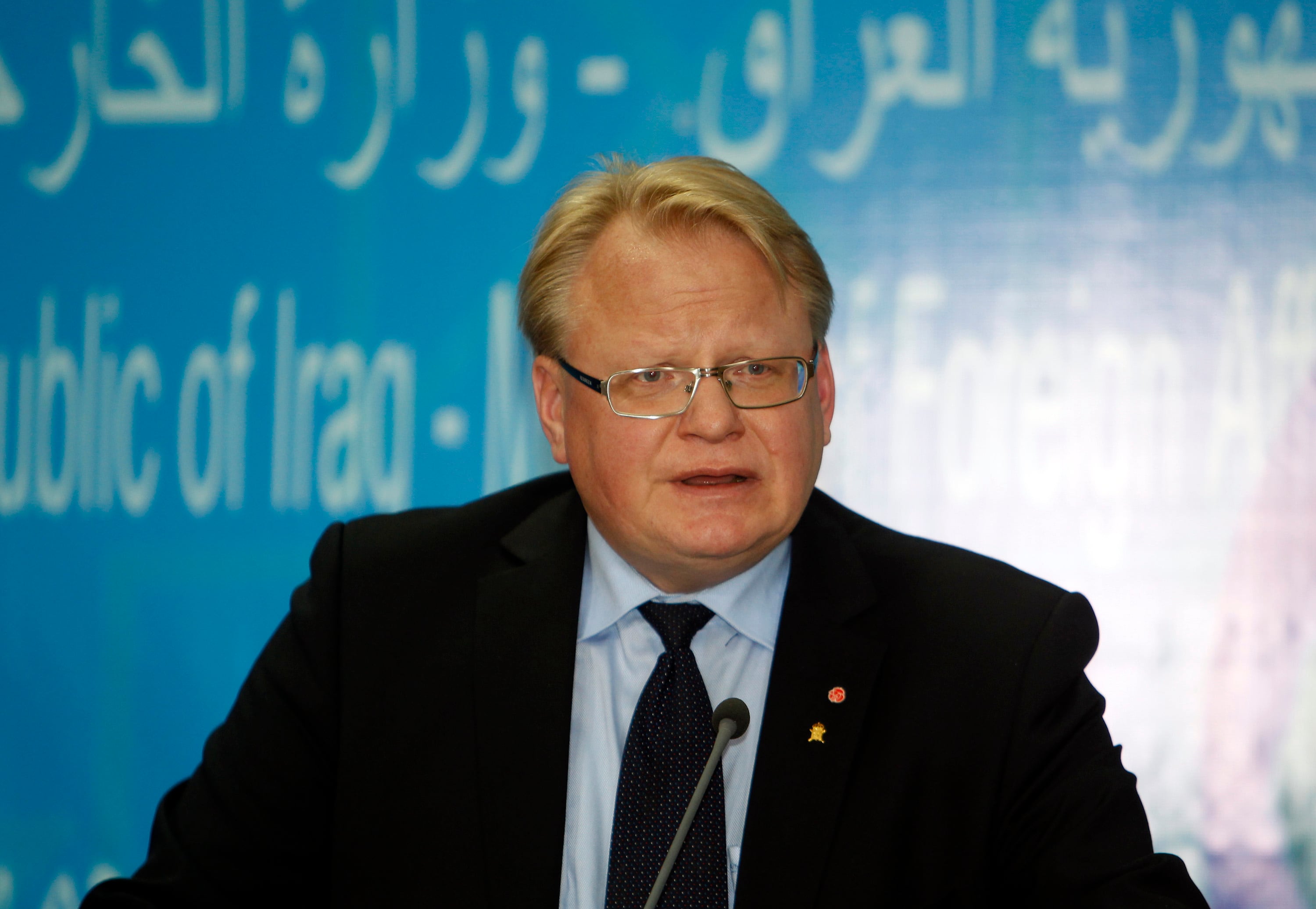WASHINGTON ― U.S. Secretary of Defense Jim Mattis is leaning heavily on the Swedish government to not sign o to a new anti-nuclear weapons treaty, to the point of threatening Sweden’s military alliance with the United States, according to local news reports.
The national Swedish newspaper Dagens Nyheterin reported this week that Swedish officials are upset by the letter, sent to Swedish Defence Minister Peter Hultqvist, which indicated defense industrial cooperation between the two nations could be endangered if Sweden signs onto the treaty, as is expected.
The report, translated into English for Defense News by Dagens Nyheterin security policy correspondent Mikael Holmström, said Mattis warned Hultqvist that signing the treaty could directly impact Sweden’s relationship with NATO.
Sweden is part of NATO’s so-called Gold Card program, which gives it privileged rights as a non-NATO member; that status is up for renewal in October. In addition, the letter stated that Sweden signing the nuclear ban would close the option of joining NATO in the future, according to Dagens Nyheterin.
The Swedish paper also cited a source raising fears that signing the nuclear agreement could impact defense industrial cooperation between Sweden and the U.S., including programs being worked on by Saab. Although not mentioned specifically, Saab is teamed with Boeing on a design for the U.S. Air Force’s next-generation trainer aircraft.
Pentagon spokesman Johnny Michael declined to comment on the letter itself, but said the U.S. “does have serious concerns with the Nuclear Weapons Ban Treaty, and strongly discourages states from signing or ratifying” as it contains provisions that “could potentially affect our ability to cooperate with parties to the treaty on issues of mutual interest. It also undermines the Non-Proliferation Treaty (NPT) regime.”
However, the U.S. “values its defense relationship with Sweden,” Michael added.
One hundred twenty-two countries agreed to endorse the treaty against nuclear weapons at the United Nations, which is up for a formal vote Sept. 20. Sweden was one of the nations that endorsed the treaty, and Foreign Minister Margot Wallström has previously stated Sweden intends to officially sign on. Hultqvist, for his part, is reportedly against signing the document.
The U.S. is a vocal critic of the nuclear weapons ban, due to its longstanding policy of nuclear deterrence, but Mattis reportedly threatening cooperation between the two nations over Sweden’s decision to sign the treaty surprised Jim Townsend, who spent eight years as deputy assistant secretary of defense for European and NATO policy and is now with the think tank Center for a New American Security.
RELATED

“You don’t use a threat to the bilateral relationship lightly; the impact on your own national security from actually using the leverage if you don’t get your way can be damaging. The cause had better be worth the risk,” Townsend said.
Townsend said it was not surprising the U.S. would push an ally on not signing the treaty, and he noted his office had expressed similar sentiments in the past. But adding a threat, as this letter reportedly did, strikes him as misguided.
“They are a close friend in a dangerous neighborhood, and so threatening that important relationship lacks some credibility. Do the Swedes really think we would downgrade our relationship to punish them for signing a nuclear ban treaty?” Townsend said. “However, if Sweden did join NATO, they would have to reverse their anti-nuke stance because NATO is a nuclear alliance and so Sweden as a NATO member would participate in the nuclear planning as well.”
Hultqvist, who is still under the threat of a no-confidence vote in Sweden over a security breach resulting from the Transport Agency’s outsourcing of an information technology database contract to IBM in 2015, told Defense News in a May interview that he was confident relations between his office and the Pentagon would remain strong under the Trump administration.
“I have no signals that anything has changed between the United States and Sweden. I think we have the same position we have had with all administrations,” he said May 17. “So I think there is stability in our relations. I am looking forward to discussing with him how to move forward and what we are going to do in the future.”
Aaron Mehta was deputy editor and senior Pentagon correspondent for Defense News, covering policy, strategy and acquisition at the highest levels of the Defense Department and its international partners.








